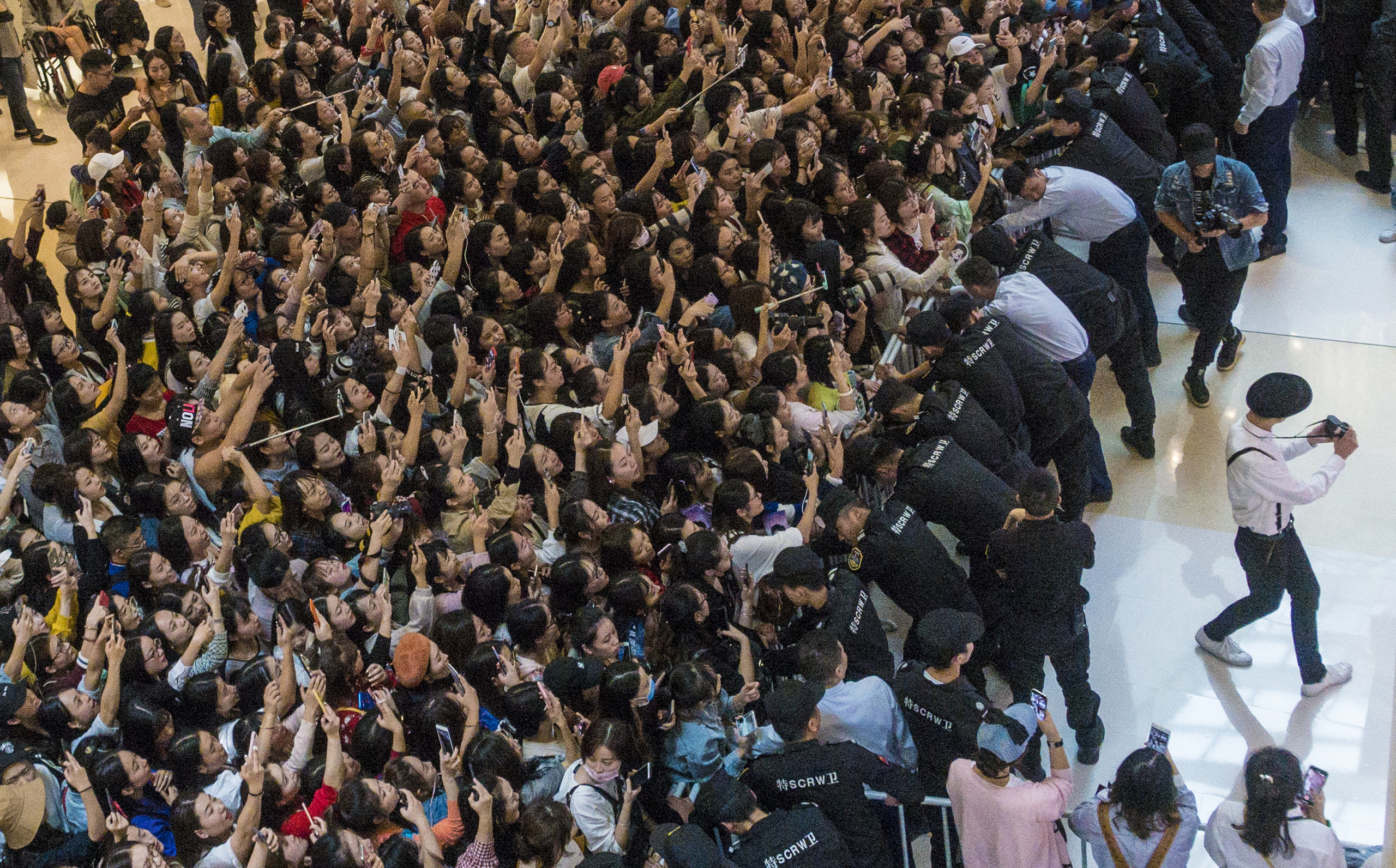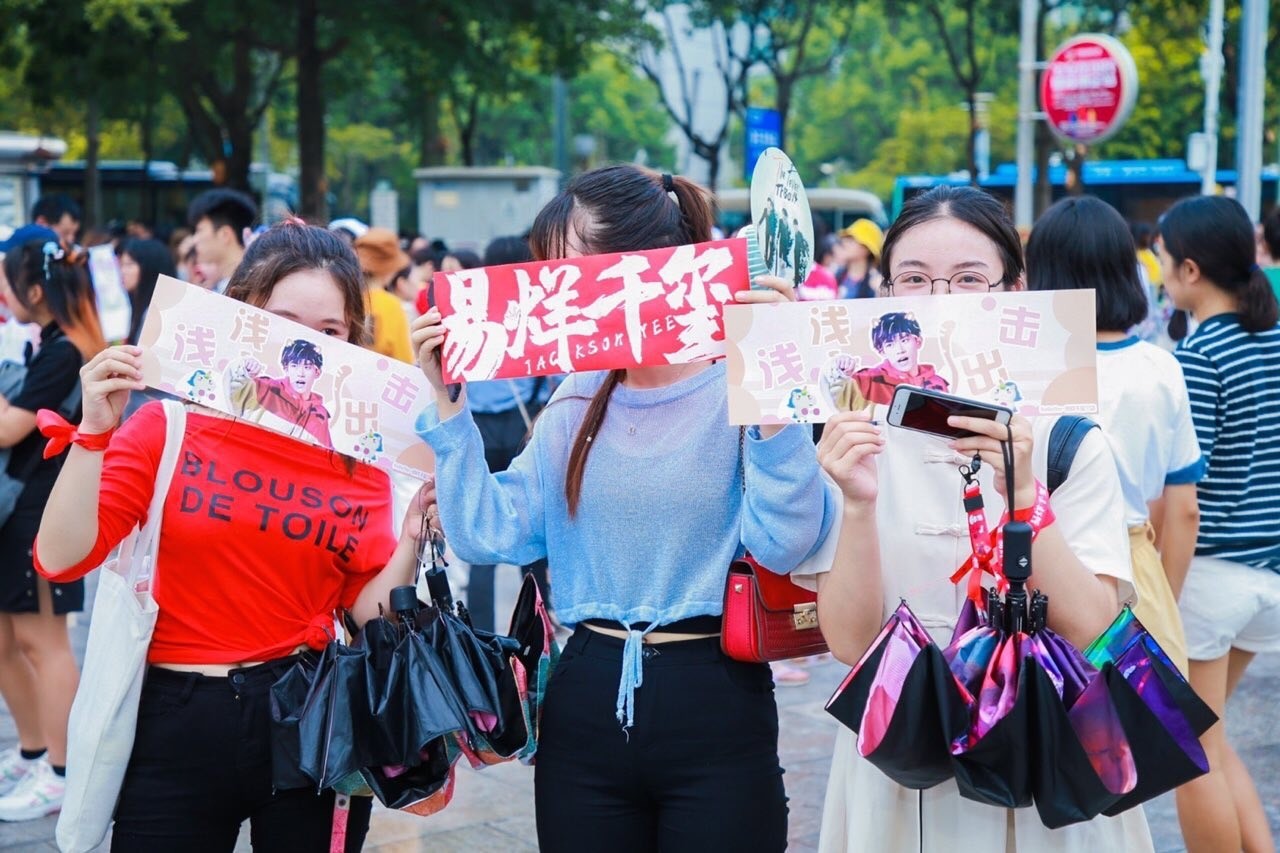The column "Know a little psychology" written by the teachers and students of the School of Psychology and Cognitive Science of East China Normal University, which works twice a week, focuses on current events and popular science knowledge, involving parenting education, family relations, career path and many other aspects. Apply psychology to daily life to make life more exciting.
Author/Yao Qi Associate Professor, School of Psychology and Cognitive Science, East China Normal University
Hao Heming, Undergraduate of School of Psychology and Cognitive Science, East China Normal University
Operation/Yang Xiao
In June, 2019, Sean Xiao became the "top traffic" in the current entertainment circle with her clever performance as the role of The Untamed, and the new drama came to the door, and the endorsement was soft. Who knows that after stepping into 2020, Sean Xiao, which should have ushered in the peak of its career, is not doing well. After experiencing the "227 Incident" at the beginning of the year, fans reported the AO3 platform and offended the circle of peers. The heat of this incident just subsided not long ago, and it happened that fans took advantage of their teachers’ profession to record videos for them, which once again pushed Sean Xiao to the forefront of public opinion. If the early "227 incident" was just a struggle for interests among different circles, the recent "teachers’ aid-seeking incident" has aroused extensive discussion among the whole people about rational idolize.

Figure/IC photo
Throughout the entertainment circle, it is not uncommon for fans to make some crazy moves to protect their idols. These behaviors that are difficult to understand in the eyes of non-fans have long been the norm in rice circles. We can’t help wondering why fans are so fanatical in the face of idols that have almost no intersection with their real life.
1 idolize pursues the "ideal self".
There is a question that often puzzles passers-by: Is it worthwhile for fans to pay so much for idols and get nothing in return? Idolize seems to be chasing a stranger who has nothing to do with our real life, but in fact, for fans, idolize is a process of "projecting" his ideal self onto his real idol. "Projection" refers to a psychological effect that an individual unconsciously reflects his own thoughts, attitudes, wishes and other personality characteristics on external things or others. Fans see the characteristics they yearn for in idols, and through the act of "chasing", they turn their yearning for this characteristic into a fascination with idols themselves.

Figure /unsplash
"idolize is actually chasing himself, and you are designing an ideal life for yourself." Sa Beining’s words can be said to hit home with many girls. For "career powder", idol is the person I want to be; For "mom powder", idols are the people I want to protect; For "girlfriend powder", the idol is the person I want to fall in love with. It is not difficult to understand why when idols are attacked by public opinion, fans will rush to the front line to defend, clarify, and even become keyboard players and people. Idol is the representative of ideal self. When questioned, fans will feel that they have been attacked and doubted. On the surface, fans are defending idols, but in essence they are defending themselves.
2 emotional flow between idols and fans from one-way to two-way
Earlier, the relationship between idols and fans was a kind of "quasi-social relationship", which was a one-way interpersonal relationship between viewers and screen characters. We go back 20 years, and the relationship between the popular national idols "Four Heavenly Kings", Jay Chou and others and their fans is a typical "quasi-social relationship". Because we like them, we will watch TV dramas starring them and listen to their records. This emotional flow is one-way, and fans have been following the footsteps of idols.

Figure/IC photo
But nowadays, fans are not satisfied with just appreciating their works. They need idols to respond to their efforts. As a result, offline fan meetings, handshakes and other activities to promote the two-way emotional flow between idols and fans came into being. These two-way interactions in real life make the new generation idols more like friends around fans, bring fans the truest sense of companionship, greatly narrow the psychological distance between idols and fans, and make fans and idols more viscous.
3 fan groups meet the sense of belonging in the era of high loneliness
People are not independent individuals, and each of us has a need for belonging to the group. However, in this era of high anxiety and loneliness, traditional social relations can no longer meet our needs. Our neighbors have not seen each other for many years, and colleagues rarely contact each other after work. It seems that we have been living alone. For the lack of a sense of belonging, we began to turn our attention to some non-traditional groups, and the fan group happened to be an excellent choice of "low threshold and high sense of belonging".
Unified fan names, unified supporting materials, making lists for data, buying magazines and endorsements … For fans, although everyone is a stranger from all corners of the country, these activities give everyone a unified label-"XX fans". This kind of label satisfies the fans’ need for a sense of belonging to the group, and constantly strengthens the fans’ sense of identity with their group.
It is found that "group identity" plays a key role in influencing the willingness of group members to participate in collective activities. Most people participate in group activities, not only because they expect the results of the activities, but also because they have a sense of identity with other members of the group. This sense of group identity also makes fans unconsciously divide themselves into different camps-"inner group" and "outer group".

Figure/IC photo
"Inner group" refers to the group in which a person often participates, or lives, works or carries out other activities, and has emotional identity and a strong sense of belonging; "Outer group" refers to all social groups except "inner group", and it is a group where people have no participation or sense of belonging. For fans, a group that likes the same idol can become an "inner group", while those who like other stars are classified as "outer groups".
In order to satisfy the sense of self-esteem, individuals tend to treat the "inner group" to which they belong more positively, while people generally have contempt, provocation or hatred for the "outer group", that is, "inner group preference" and "hostility to the outer group". On social platforms such as Weibo, we often see friction among fans, fighting for ranking in the leaderboard today and for poster C tomorrow. Fans don’t judge objectively like judges. All they have to do is to defend themselves, protect the inner group, and then "step on" the outer group intentionally or unintentionally, so as to satisfy their sense of self-esteem as members of the group.
4 The advantages and disadvantages of fan culture for society
With the rise of Internet star-making craze, more and more traffic stars have come into public view, and people’s comments on idolize’s behavior are always mixed. In fact, fan culture has both advantages and disadvantages for the development of society. On the one hand, in order to help idols get more exposure channels, the scale of fans’ support activities is increasing, and one activity calls resources from all sides to promote the development of various industries. In addition, in order to improve the popularity of idols and establish a positive image, fans will spontaneously raise money and participate in public welfare activities in the name of idols. It is undeniable that this is a new positive driving force for social development.
On the other hand, because the emotions of fans in the collective are easily amplified by infection, and at the same time, the anonymity of the network will weaken people’s sense of social responsibility and self-control, and the frequent network abuse wars of fans under the herd mentality have caused serious network pollution, which has brought inevitable negative effects to teenagers who have just come into contact with the network and have no clear view of right and wrong. This is also the reason why some people regard fan groups as "network cancer".

Figure /unsplash
Nowadays, fan culture has become a part of social culture, but the rapid development of fan culture in China is only a few years. In recent years, the explosive talent show has officially brought the "internet star-making" model into public view, and people have begun to discuss "idols" and "traffic stars" extensively. At present, the mode of creating idol groups by entertainment companies is constantly improving, and the management and development of fan groups are also constantly improving and standardizing. How the fan culture will develop in the future is worth looking forward to with a positive attitude.
关于作者